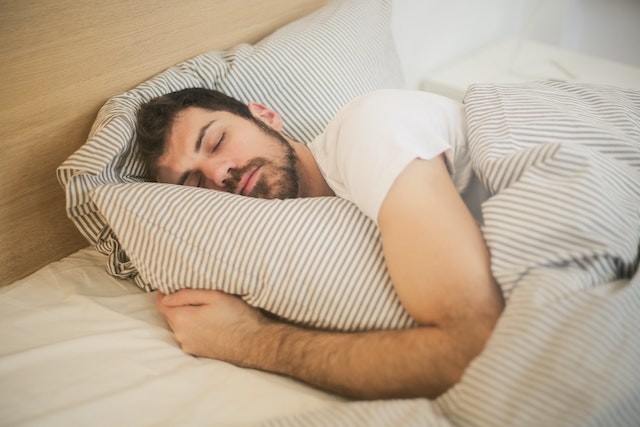Sleep apnea is a sleep disorder that strikes when the airway of a person becomes clocked during sleep, frequently causing him to wake up feeling exhausted even if he has gotten hours of quality sleep one night before.
As specified in The Bio Chronicle report, the condition is affecting approximately 22 million Americans, with males being more likely than females to experience sleep disorder, although luckily, there are substitute treatments for sleep apnea that do not necessitate one to put on a CPAP machine all night long, a therapeutic that can be inconvenient, uncomfortable and embarrassing to use in front of other people.
Here are three of the best alternatives to CPAP machines when dealing with sleep apnea:
ALSO READ: Study Shows Link Between Healthy Sleep Habits and Lower Risk of Heart Failure

Sleep apnea, a sleep disorder strikes when the airway of a person becomes clocked during sleep, frequently causing him to wake up feeling exhausted even if he has gotten hours of quality sleep one night before.
1. Wear the 'Mandibular Advancement Device' or MAD
MAD is a customized mouthpiece that's shifting the lower jaw forward, opening up the airway, and helping with breathing. This machine is a substitute for CPAP Machine usage and can be put on while either asleep or awake and should not affect the quality of sleep.
This device is a more natural technique for sleep apnea treatment that does not involve any invasive treatment such as surgery, wire insertion through the neck, or use of the CPAP machine, which is described in a report from the Cleveland Clinic.
Even though it does take time to adjust to putting on the device, patients have reported less severe symptoms, improved quality of life, or decreased reliance on other treatments following the use of it for only a week. Patients are reporting an improvement as well, in dental health as an additional benefit.
2. Engage in Weight Loss and Increased Physical Activity or Exercise
Weight loss and exercise are two of the simplest, most effective strategies for reducing sleep apnea. It is essential to note that these two techniques need to be done together as they can offset each other.
For instance, if losing weight is causing a decrease in lung capacity, regular exercise will help increase it again.
Regular exercise is helping increase airflow during sleep through the expansion of the chest cavity by lowering the blood pressure of the body.
People suffering from sleep apnea who have been working out regularly have noted an enhancement in their symptoms, which include an increase in energy levels during the day and reduced essentiality for naps.
Weight loss is beneficial since it lessens fatty deposits on the neck, as well as the throat that may limit airways during sleep.
3. Try a Different Sleeping Position
A lot of people are not aware that there are several different sleeping positions that can help with sleep apnea.
Sleeping on the back is the best position although it is not always the most comfortable. Moreover, sleeping on the back with a slight elevation of the head can help keep airways open and lessen snoring.
For those who prefer something quite more comfortable compared to a pillow, trying to sleep on an aerated foam bed or a wedge pillow is recommended.
For one who is already asleep on his back and still having trouble breathing, there are other positions that might be more appropriate for him like stomach sleeping, depending on how serious his sleep apnea, as per Mayo Clinic.
Other positions will make one feel less claustrophobic and give his neck more space. Some other positions he may want to try are the following: resting on his side with an arm under a pillow and one arm over his head, lying on his side with his both arms under pillows, and resting on his back but with a slight incline so that gravity is pulling through much effortlessly.
Related information about alternatives to CPAP machines is shown on Daniel P. Slaughter, MD's YouTube video below:
RELATED ARTICLE: How Do 7 to 9 Hours of Sleep Help Improve Mental Health?
Check out more news and information on Sleep in Science Times.




![Earth's Quasi-Moon Kamo‘oalewa Could Originate From Lunar Surface Not Asteroid Belt [Study]](https://1721181113.rsc.cdn77.org/data/thumbs/full/53275/89/56/50/40/earths-quasi-moon-kamo-oalewa-could-originate-from-lunar-surface-not-asteroid-belt-study.png)









